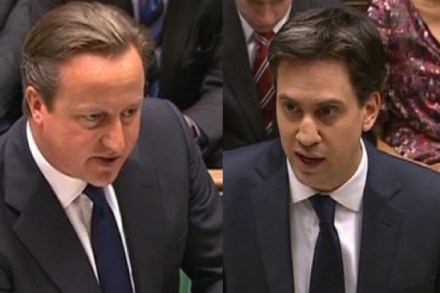PMQs: Immigration arguments mean Ukip won the session without asking a question
Ed Miliband chose one of his medleys of things that have gone wrong for today’s Prime Minister’s Questions. There were plenty of those to choose from, and the Labour leader started with the almighty row in the Tory party over the European Arrest Warrant. He accused David Cameron of delaying the vote because of the Rochester and Strood by-election, and offered the Prime Minister next week’s Opposition Day debate to hold it, where he said Labour would support him to get the measure through. Cameron was having none of that, though, and pledged that the vote would be held before Rochester. He claimed Miliband’s questions had collapsed. listen to ‘PMQs:





















